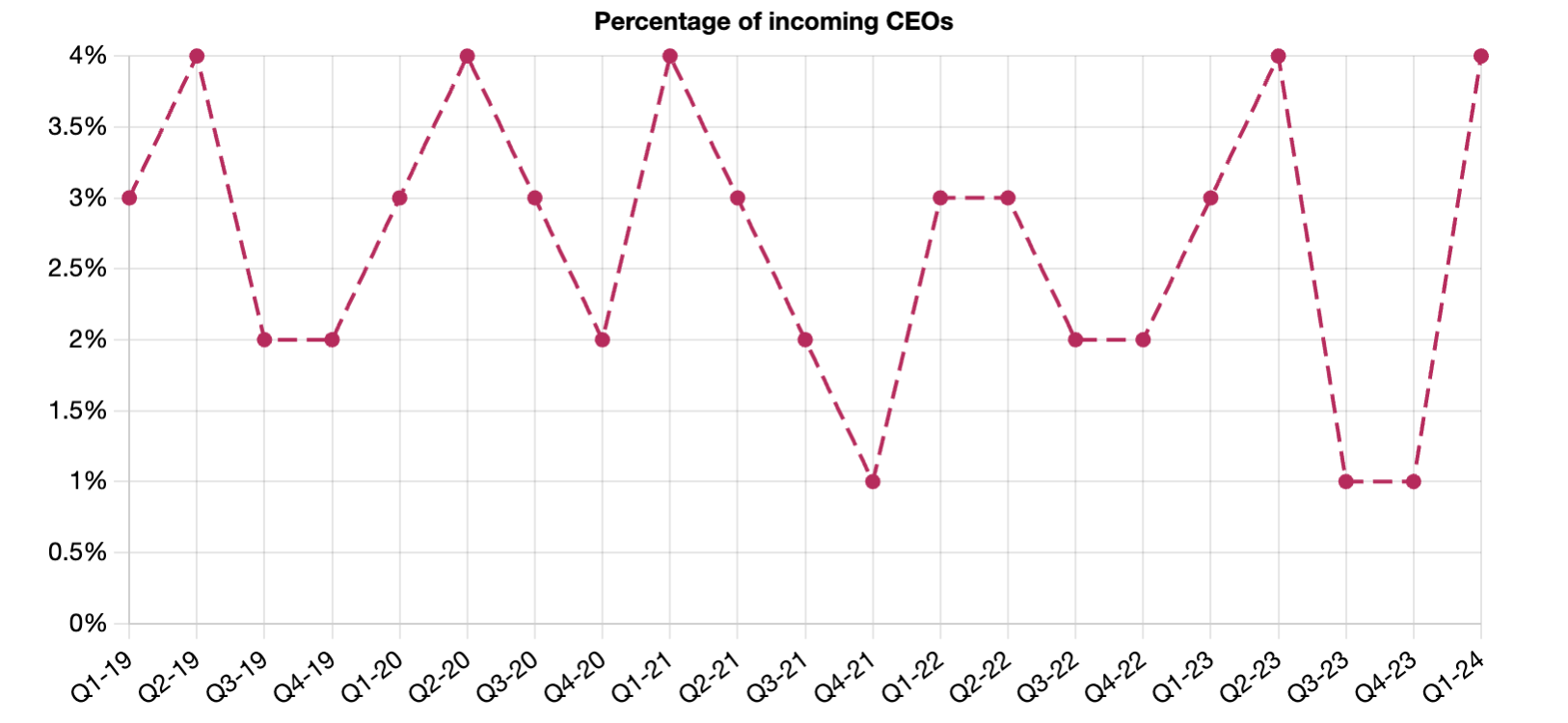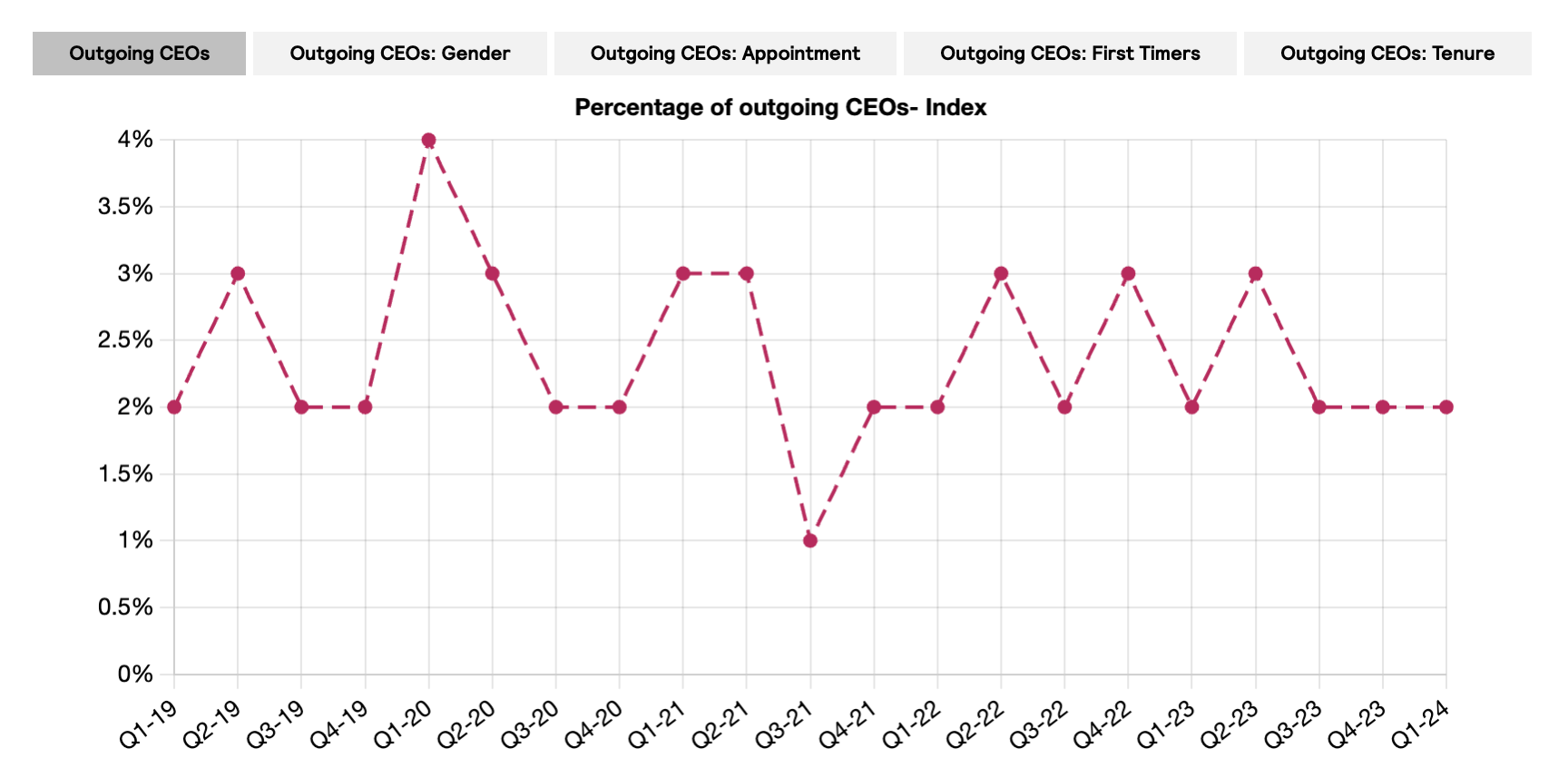
Number of failed CEO appointments also increases

CEO turnover worldwide spiked in the first quarter of 2024, with the number of "failed appointments" going up, according to data from Russell Reynolds Associates (RRA).
A total of 68 CEOs were appointed and 52 CEOs departed their roles in the first quarter of 2024, the highest since the first quarters of 2018 and 2020.
According to the report, this indicates a need for boards to "double down on their succession planning" for their entire C-suite.

Source: Global CEO Turnover Index
The number of failed CEO appointments, or those who lasted less than two years, accounted for 15.1% of outgoing CEOs, higher than the 9.6% average since 2019.
"This suggests that in challenging macroeconomic environments, boards are prepared to move quickly to remove underperforming CEOs," the report read.
A critical factor for CEO longevity is the appointment of the right senior leadership team, according to Stephen Langton, Managing Director, Board & CEO Advisory Partners APAC Lead at RRA.
"In a challenging macroeconomic environment coupled with the rise of emerging technology, newly appointed CEOs will need to lean on strategic counsel from experienced board members to make the right appointments to ensure an enduring legacy," Langton said in a statement.
But the report warned that even the most efficient new CEOs this quarter will likely struggle to establish a high-performing senior leadership team until well into 2025.
"Boards must reframe their expectations of an incoming CEO's ability to perform in the short term," it said.

Source: Global CEO Turnover Index
Meanwhile, the report also found that women are still "vastly underrepresented" in the CEO role. Only five women were appointed CEOs in the first quarter of 2024, or just around seven per cent of the total 68 appointments during the quarter.
"At the current pace of change, it's estimated to take 88 years to achieve global gender parity," the report said.
Women CEOs are also more than twice as likely to leave their roles within two years of appointment, the report added. They are also four times more likely to leave within 12 months than men.
"Boards cannot ignore their accountability for a new CEO's success, and many are not doing enough to set women candidates up to succeed," the report read.
To achieve gender balance, it underscored the need to create "systemic changes" over succession planning and execution.
"The scope of CEO candidacy needs to be widened and organisations need to take the preparation of women for CEO roles far more seriously - investing more in their women leaders, increasing pipelines, and addressing bias," it read.
RRA's Global CEO Turnover Index tracked 1,822 public companies globally.